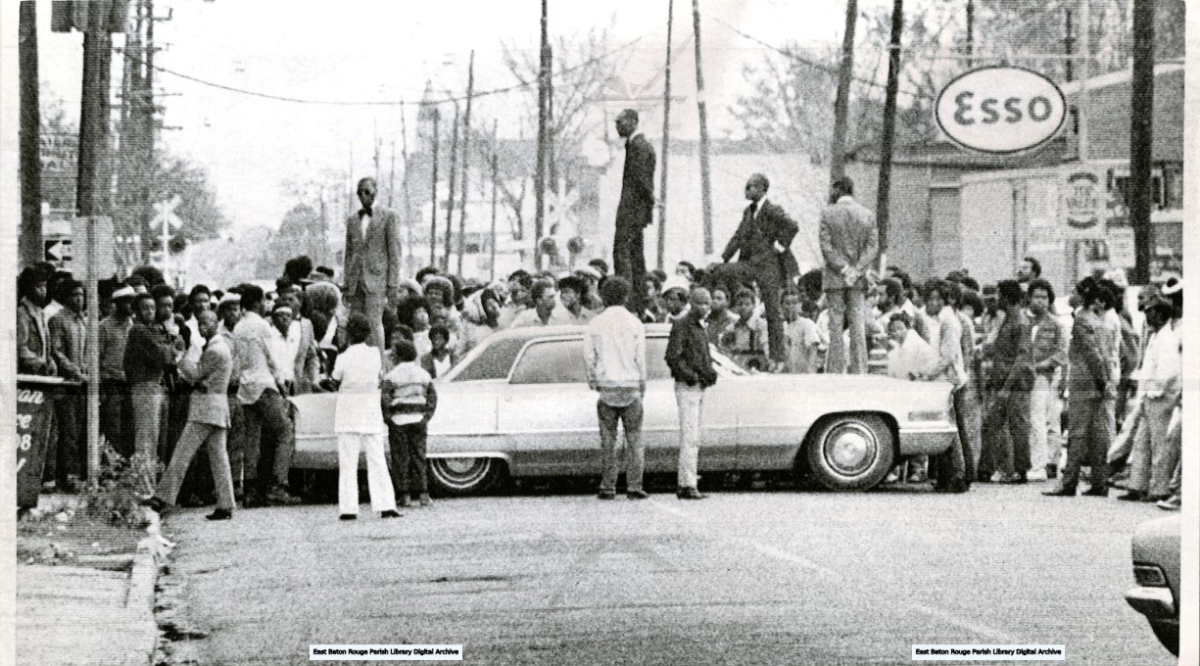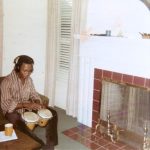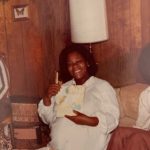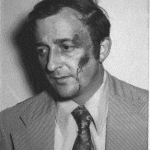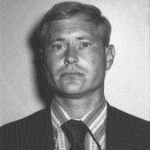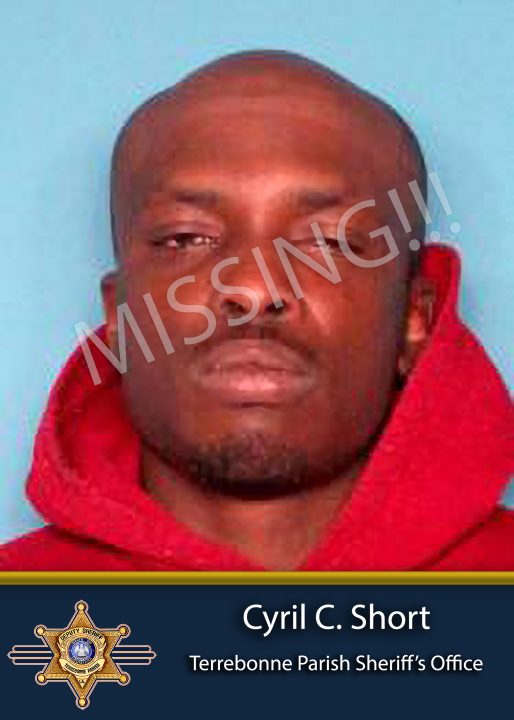
Terrebonne Parish Library Main Branch to host a Harry Potter Birthday Party!
July 22, 2023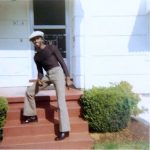
Fifty years after fatal shooting: Milton Scott’s family, FBI agents talk about the emotional toll
July 23, 2023By Myracle Lewis, Amelia Gabor and Birdie O’Connell
LSU Manship School News Service
PART ONE OF TWO
On a hot, quiet morning in July 1973, 21-year-old Milton Scott heard a loud knock at his door.
Scott was lying in bed with his pregnant wife, Beverly, and their 2-year-old daughter, Andrea. He felt uneasy about a bloody nightmare he’d had that night.
- According to Milton Scott’s widow, Beverly (Scott) Shabazz, Milton Scott was an artist who loved listening to jazz music and his favorite musician, Jimi Hendrix. (Photo courtesy of the Scott family)
- A pregnant Beverly (Scott) Shabazz shows off a gift in the early 1970s. (Photo courtesy the Scott family)
“I had to do everything I could do to calm him down, to let him know that he was just having a bad dream,” Beverly said before releasing a loud sigh.
But the unconscious terror would soon become reality.
Around 11 a.m., FBI agents Delbert Hahn and William Wood arrived at the green duplex at 2618 Alaska St. in Baton Rouge, expecting to make a routine arrest. Scott was wanted for deserting the Army.
Before knocking on the door, Hahn, who felt uneasy about the neighborhood, grabbed Wood’s blackjack from the car to make sure no one stole it. Then, the agents approached the wooden door and noticed a brass nameplate titled “Milton X.”
The shiny plaque displayed Scott’s religious fervor for the Nation of Islam, but it rang alarm bells for Hahn, who had interviewed Black Muslims involved in a shootout in Baton Rouge a year earlier. Those Muslims were visiting from Chicago, and the confrontation had left two sheriff’s deputies and two Black men dead.
Although Baton Rouge officials stated that no local Muslims had been involved, Hahn said he was nervous when he saw Scott’s sign.
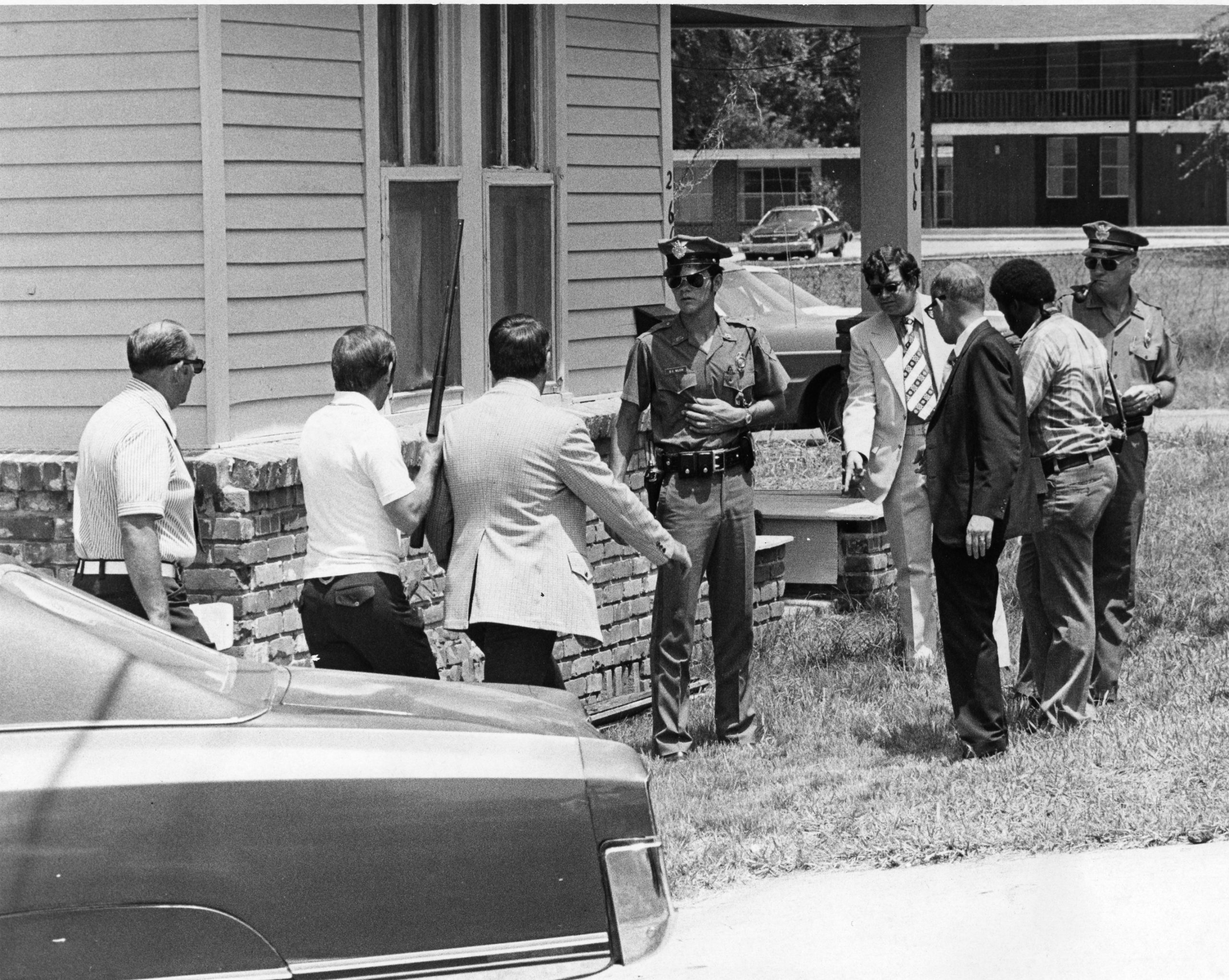
Local and federal agents were on the scene shortly after Milton Scott’s death in Baton Rouge in 1973 (Photo courtesy of The Advocate)
And as he opened the door, Scott, an LSU employee who cleaned Tiger Stadium, had his own suspicions. He had never been in the Army, and his recent membership at the local mosque had fortified a mistrust of white people.
“He knew he hadn’t done nothing wrong, so why should he go anywhere with anybody?” Roy Ameen Mateen Qaadir, former secretary of Muhammad’s Mosque No. 65 in Baton Rouge, said recently.
A brief verbal interaction escalated into a fight. Two gunshots followed a split second apart. Barefoot and breathless, Scott was pronounced dead in his front yard.
“When I heard that first shot go off, I said, ‘Oh, my God. They’re trying to kill my husband,’” Beverly said.
Hours later, the FBI discovered that Scott was a victim of identity theft. Calvin Wallace, whom Scott had met on a trip to California, was the real deserter and was already serving a seven-year sentence at the San Quentin State Prison for other crimes.
But there was more.
Had the FBI executed a fingerprint check on the deserter, it would have noticed the error. But the Bureau had ended its fingerprint search requirement in 1969 due to labor shortages and high desertion rates during the Vietnam War.
A failure by the Army to furnish a photo of the deserter also kept the agents from realizing they were pursuing the wrong man.
With the 50th anniversary of Scott’s death coming Tuesday, one central question still reverberates: How did a matter that could have been resolved fairly easily turn deadly? Tthe answer seems to hinge on the preconceptions that Scott and the agents brought to the encounter–and that still shape the interactions between young Black men and law-enforcement officers today.
During federal and state grand jury investigations, two opposing viewpoints emerged.
Beverly said Scott fought to defend his family after the armed agents barged into the house and dragged him out. The agents testified that they acted in self-defense after Scott violently resisted.
In recent interviews, Scott’s widow and the agents agreed on one point: The loss of a life taken in less than five minutes could have been prevented.
The LSU Cold Case Project investigated Scott’s death, gathering more than 700 pages of FBI files and talking to more than 30 people. Both FBI agents talked publicly for the first time about the case, making possible the first full narrative of what happened from both sides.
The findings also highlight the significance of that moment at Scott’s front door, which served as a physical and perceptual barrier that divided his and the agents’ preconceptions about each other’s motives.
- FBI Agent Delbert Hahn had an inflamed bruise on his left eye immediately after the confrontation on July 18, 1973, that led to Milton Scott’s death. (FBI file photo)
- FBI Agent William Wood had minor injuries after the confrontation on July 18, 1973, that led to Milton Scott’s death. (FBI file photo)
‘I do what I believe is right’
Milton Scott grew up in Old South Baton Rouge, a once-thriving neighborhood that was isolated by the construction of U.S. Interstates 10 and 110.
Scott was on McKinley High’s baseball team, and another outlet was art. His pencil sketches of abstract art captivated his future wife, Beverly Grant, who now uses the Muslim last name Shabazz.
Scott described himself on his application to Southern University: “I do what I believe is right, and I like to be told when I’m doing wrong.”
When a pencil wasn’t in his hand, a dance floor was beneath his feet. Scott’s moves crowned him as the Dancing Machine.
“He was doing moves that Michael Jackson wished he could’ve done back in the day,” Beverly said.
The Nation of Islam’s ideals of economic self-sufficiency and liberation from white supremacy unnerved many white people, who feared violence. But the group compelled new followers, including Scott, to join for religious reasons or in a search for social justice.
In June 1972, Scott married Beverly, and the two joined Muhammad’s Mosque No. 65, which followed movement leader Elijah Muhammad.
Beverly said Scott “believed that what they were saying and doing was the truth. He said this is giving the Black man credit. He’s no longer a slave when he becomes a Muslim; he’s an ex-slave.”
He also took on the name Milton X Scott.
After Scott’s death, police found no weapons in his home. Instead, they found one Nation of Islam flag, two pictures of Elijah Muhammad, four books written by Muhammad and about 75 editions of the “Muhammad Speaks” newspaper.
His frustrated Baptist parents, according to Beverly, asked: “‘What would make you turn yourself completely from God,’ and he would say, ‘I am a god.’”
The Nation of Islam taught that the Black race is synonymous with beauty and divinity as God’s original people. It dismissed Christianity as the “white man’s religion.”
Qaadir, the mosque’s former secretary, said Scott “was the closest thing we had to a lieutenant. … He was all for it; he was gung-ho.”
According to Daniel Thomas, another mosque member then, Scott said that if he were attacked by police, or what they called devils at the time, he would protect himself and his family.
Baton Rouge riot sets the tone
“When Milton was killed, there was a lot of animosity against Muslims in Baton Rouge at that time,” Edgar Freeman, a Baton Rouge native, said.
The clash on Jan. 10, 1972, attested to this. When police attempted to disperse a Black Muslim demonstration, gunfire erupted on North Boulevard, killing the two sheriff’s deputies. Nine Black Muslims were charged with the murders.
“The minister told us don’t be caught out on the street, and definitely do not associate with the renegades,” Beverly said.
Agent Hahn was sent from the FBI’s New Orleans office to interview the indicted men.
“We were called white devils. They didn’t call me ‘Mr. Hahn’ or ‘Agent Hahn.’ We were keeping the Black race down, and we were totally useless,” he said.
Hahn learned that Nation of Islam members did not carry weapons but trained in combat skills that would allow them to seize police guns. He was advised that they chanted the Arabic phrase “Allahu Akbar,” which means “God is great,” to build up courage.
“From that day forward,” Thomas said, “the temple was highly watched by the FBI. … They’d harass us more than the way they harass now.”
Scott told his wife that he had noticed white men following him. Although FBI documents show no surveillance of Scott, Beverly speculates that Scott’s nightmare prompted him to fight.
“He knew he was going to die. He knew they hadn’t been following him on those days for nothing,” she said.
At the door with the misconceptions
The Army declared Scott a deserter from a base in California on Nov. 22, 1972. It provided Scott’s date of birth, physical description and Social Security number, and Hahn obtained a copy of Scott’s driver’s license.
“For me, it was just another deserter case,” Hahn said. “So, I took Bill Wood with me. We figured we’d have the guy in jail and have lunch.”
Two perspectives collided at the wooden door when the agents approached the house.
The “Milton X” sign was his first indication, Hahn said, that Scott was a Black Muslim.
Scott confirmed his identity and then slammed the door.
The agents said they tried to kick it in before Scott charged out at Wood. Beverly said Scott rightfully denied the armed “white liars” entry into the house as they barged in.
According to the FBI files, only one witness — a city/parish sanitation worker — saw the fight develop, and he recalled seeing a Black man pushing two white men off his steps. Beverly and the agents say Scott screamed, “Allahu Akbar!”
Hahn said that when he heard those words, flashbacks to the Black Muslims involved in the North Boulevard violence rushed through his head. He said he assumed Scott would try to steal the agents’ weapons “because that’s what they said they do.”
Hahn said he saw Scott pick up an object from the ground. He thought it was Wood’s gun.
“I’m pretty sure that Bill said ‘Shoot,’ and I’m thinking, well, [Scott] has his gun, and that’s why Bill wants me to shoot him.”
Hahn shot Scott twice. Scott was pronounced dead on the scene, with only a gold wedding band, three dimes and one nickel on his person.
And it turned out that the object Scott had picked up was not Wood’s gun but the blackjack that Hahn had taken from the car and placed in his pocket.
Beverly’s last memory of Scott was his eyes rolling to the back of his head and blood gushing from his body.
Fifty years later, Hahn believes the FBI should have done more to verify who had enlisted. Scott’s family also said the mistaken identity could have been resolved if the agents had done their homework.
A glance at state and federal records would have revealed that Scott was working at LSU when Wallace deserted.
According to Hahn, Scott could have prevented his death by saying he had never been in the Army instead of shutting the door. Beverly protests that Scott repeatedly told the agents he had never enlisted.
“It just took so much out of me and just to actually see it happen,” she said.
This story was written by Myracle Lewis and reported by Lewis, Amelia Gabor, Birdie O’Connell, McKinley Cobb, Brooke Couvillon, Hannah Rehm and MacKenzie Wallace.

